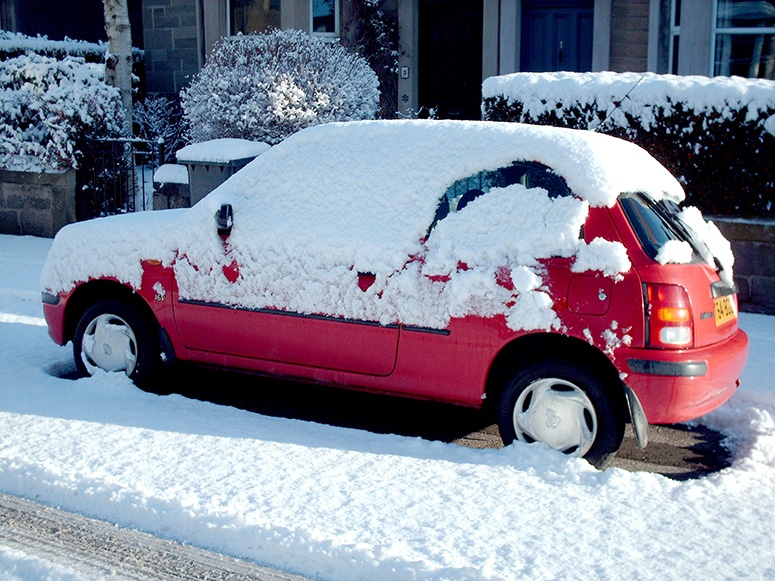Have ever noticed your car’s sluggish reaction when you hop into your car and drive off to work in a chilling morning after a snowstorm? Have you ever thought about properly winterizing your car before winter dawns? Just as a coat, hat and gloves is necessary for us in cold winter, so is a similar kind of attention to our cars, if you want them to function at their best.
Frosty weather is tough on a car’s engine. Give it some time to warm up first before you drive it. Colder and thicker oil, more energy needed to start an engine because of the battery’s lower charge and cold gasoline harder to burn, these factors combined makes it harder for the engine to operate smoothly at the very beginning of start. To warn up your engine, you can install a remote car starter or allow your vehicle to idle for about 30s before driving. And then gently drive your car without working it too hard.
Check your oil and oil viscosity. Oil lubricates the metal surface of your engine and reduces the frictions between the components, thus stop them from causing a lot of damage. In winter, cold temperature makes oil become more viscous, but remember, you can always turn to your owner’s manual or a repair shop for a thinner oil type depending on the season.
Check your cooling system and put in the right amount of antifreeze. The coolant in your cooling system helps your engine from overheating. However, this important fluid can be contaminated easily. So it should be checked to see if the mixture is right. Antifreeze, just as the word says, it protects your engine from freezing in cold winter. It’s important to keep equal parts antifreeze and water in your radiator, which can be solved by buying pre-mixed bottles of antifreeze and water at gas stations. If you don’t neglect the amount of antifreeze, the coolant can freeze, and the engine will be overheated.
Perform an annual vehicle tune-up before winter weather sets in. And make sure that the spark plugs, hoses and belts, air intake and air filter, and fluid levels are checked and replaced as needed.
Just think about the stress of sitting in one place and being subjected to dramatic temperature changes, and these are the situations that your vehicles facing. Keeping your tank full, adding fuel stabilizer, considering disconnecting the wiring harness for the fuel pump and sealing off any exhaust pipes or air intakes to prevent infestation will help improve the hard situations.
Last but not least, you should take the time willingly and actively to care for your automotive engine.

Caring Tips for your Car Engine in the Freezing Winter
by
Tags:

Leave a Reply